How to prepare against a flash flood
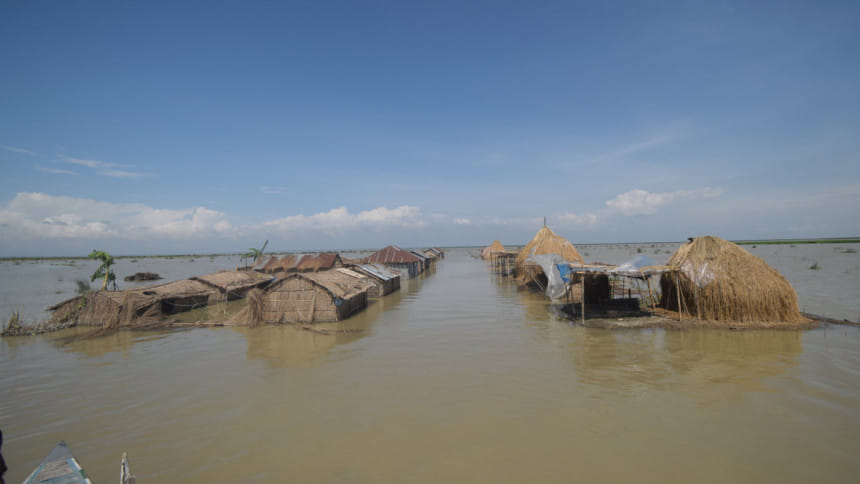
Photo: Mostafa Shabuj/Star
With the whole nation focused on flash floods in massive areas of the country, average joes, NGOs, government officials, and even influencers are allocating their resources and contacts to ease the unimaginable hardships the victims face. Many regions of the country are still in danger of floods due to the torrential rain in the current Monsoon season.
In such a dire time, it is important to know what to do before, during and after a flash flooding incident.
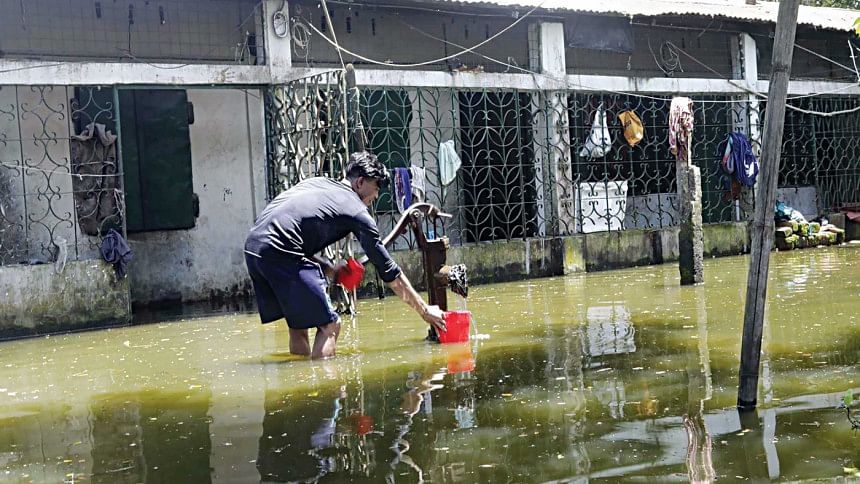
A man tries to collect drinking water from a tubewell in calf-deep floodwater in Paroirchak area by the Sylhet-Fenchuganj road in Dakshinsuram upazila yesterday. As floodwater is slowly receding in many areas across Sylhet division, sludge is beginning to float up, rendering many houses and areas still unworthy of returning to. PHOTO: SHEIKH NASIR
Dos and Don'ts Before Floods
- Stay calm and don't panic.
- Keeping your mobile phones charged is crucial for emergency communication.
- Listen to the radio, watch TV, and read newspapers for weather updates.
- Keep cattle/animals untied to ensure their safety.
- Pack an emergency kit with essential items for safety and survival.
- Keep your documents and valuables in waterproof bags.
- Know the safe routes to the nearest shelter/raised house.
- Evacuate immediately to safe places during the first phase of the flood.
- Prepare and keep enough stock of ready-to-eat food and water at least for a week.
- Be aware of hazardous places like canals, streams, and drainage channels due to flash floods.
During Floods
- Don't enter floodwaters. In case of an emergency, wear suitable footwear before entering floodwaters.
- Stay away from sewerage lines, gutters, drains, ditches, etc.
- To avoid electrocution, stay away from electric poles and fallen power lines.
- Identify any open drains or manholes
- Mark open drains with visible signs (red flags or barricades).
- Do not walk or drive in the flood waters; two feet of moving flood water is enough to wash away big cars.
- Eat freshly cooked or dry food. Keep your food covered.
- Drink boiled/chlorinated water.
- Use disinfectants to keep your surroundings clean.
- Don't leave the harvested produce in the open field.
- Don't allow waterlogging for long, as it leads to rotting and the development of diseases.
After Floods
- Keep children away from playing in or near flood waters.
- Refrain from using any damaged electrical goods unless checked before.
- Turn off utilities at main switches and unplug appliances.
- Watch out for broken electric poles and wires, sharp objects and debris.
- Stay away from eating food that has been in flood waters.
- Use mosquito nets to prevent malaria.
- Be careful of snakes, as snake bites are common during floods.
- Don't use the toilet or tap water if the water lines/sewage pipes are damaged.
- Do not drink tap water until the Health Department advises that the water is safe to drink. If you need to evacuate
- Raise furniture and appliances on beds and tables.
- Put sandbags in the toilet bowl and cover drain holes to prevent sewage backflow.
- Turn off the power and gas connection.
- Move to a higher ground / safe shelter.
- Carry an emergency kit, first aid box, valuables and important documents with you.
- Do not enter unknown waters; use a stick to check water depth.
- Make a family communications plan.
- Clean and disinfect everything that got wet.

 For all latest news, follow The Daily Star's Google News channel.
For all latest news, follow The Daily Star's Google News channel. 

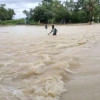

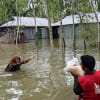

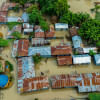


Comments